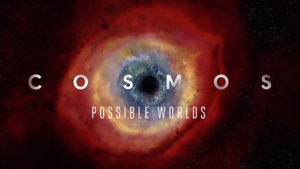
Jimmy Wales, cofounder of Wikipedia, recently attempted to pressure ECT News Network into killing or drastically revising an article that was not to his liking. In an illuminating series of no fewer than 17 email messages, Wales demanded, threatened, wheeled, and implored in a dogged effort to accomplish one thing: to get us to change our story.
Ironically, the story happens to be about his involvement in an incident that spurred debate over censorship.
Our strange encounter began with a piece we published on TechNewsWorld regarding Wales’ role in suppressing information about the Taliban’s kidnapping of New York Times reporter David Rohde. Our reporter, Richard Adhikari, was operating on his usual tight deadline and was unable to reach Wales for comment.
The article gives an account of the controversy brewing over what apparently had been a months-long effort to keep information on Rohde’s abduction off the pages of Wikipedia. The alleged interference in Wikipedia contributors’ attempts to report the story was evidently based on the highest of motives: to avoid deepening Rohde’s jeopardy. However, after the journalist escaped and the facts came out, ethical questions soon followed.
Our article includes a discussion of some of those questions. It also mentions two well-publicized prior allegations that Jimmy Wales had tampered with Wikipedia content. It originally stated that Wales had been hit with a lawsuit in connection with one of those incidents. When an urgent email arrived from Wales himself, it was my responsibility as managing editor to initiate our standard procedures for handling correction requests.
We soon concluded that the reference to a lawsuit was mistaken. Although the word “lawsuit” had been used in published correspondence surrounding one of the allegations, we could find no evidence that a suit actually was initiated. We made an appropriate edit, including a note flagging the error to our readers’ attention.
That solution did not satisfy Wales, however.
The Emmett Brown Effect
Wales was extremely troubled by the mention of another past accusation — one that was leveled by Jeff Merkey. He did not dispute its having been made. Rather, he argued that because he vehemently denied the accusation and because Jeff Merkey was reputed to be a notorious liar, the fact that it had ever been made should not be mentioned in the article at all.
Initially, Wales demanded that we kill the story entirely, implying the threat of legal action: “This story contains horrifying errors and libel of me,” he wrote. “It is extremely urgent that you take this post down IMMEDIATELY.” (Wales used variations of the word “libel” at least six times in his correspondence with us over this story.)
A few more email exchanges ensued. Wales moderated his demand that we take down the story, asking instead that we delete the offending section. Failing to win cooperation on that score, he argued that we should add context by referencing his vigorous denial of the accusations and insert a statement to the effect that Merkey was known to be a liar. “I am available for phone or email consultation on the wording,” Wales offered.
Jimmy Wales either does not understand that news reports are anchored to a fixed point in time and are not amorphously evolving wikis — or he simply thinks they should be.
You know that scene in Back to the Future Part II when Doc sees the newspaper headlines change? “Emmett Brown Committed” dissolves to “Emmett Brown Commended.” Simultaneously, a headline further down on the page changes from “Nixon Seeks Fifth Term” to “Reagan Seeks Second Term.” Apparently, that’s the kind of world Wales wants to live in. “Wales Accused of Tampering With Wikipedia Entries” would dissolve to “Wales Innocent of Lunatic Liar’s Crazy Claims.”
‘How Dare You’
It’s not as though we offered Wales no recourse for addressing his concerns. I pointed out our Talkback feature and suggested he send a comment that would appear immediately following the story. I also offered him the opportunity of an exclusive interview — we still wanted to speak to him about the Rohde incident. I assured him that he could address his objections to the original article in that format. We would make a point of conducting and publishing the interview on an accelerated schedule, I told him, and we would link it to the news report that was causing him so much strife.
Wales distrusted our motives in proposing this accommodation and initially refused: “I must decline the interview. I am not convinced that you’re after the truth,” he wrote.
I left the door open, replying, “You obviously feel that our existing coverage does not tell the full — or correct — story. We have offered you the opportunity to set the record straight through an exclusive interview, which would allow you to share your thoughts — in your own words — directly with our readers. Without your participation, we cannot reflect your viewpoint. Thus, if there’s any lack of truth surrounding this issue, it’s because you have chosen to remain silent.”
This brought an irate response from Wales: “You have my participation right here, and now, I will not grant you an exclusive interview as a reward for libeling me. Set the record straight like a responsible journalist, and then we can talk. How dare you say that I have chosen to remain silent? I have been emailing you all day.”
Well, if that was the way he wanted to participate, I thought, so be it. “Thank you for suggesting a public airing of today’s email correspondence,” I wrote. “In the absence of your participation in a standard Q&A interview, I will do my best to make appropriate use of your comments over the course of the day to enlighten our readers on your position.”
Only then did Wales agree to an interview, albeit with the tone of one who felt up against a wall. “Just send over some questions, I guess,” he wrote.
Our reporter, Renay San Miguel, contacted Wales the next day, and the two had what San Miguel felt was a congenial conversation. Wales agreed to a recorded interview and seemed open to the possibility of a podcast. The main thrust of the discussion would be his role in suppressing reports of Rohde’s kidnapping, San Miguel reiterated, but he could address other matters of concern to him as well.
In short order, Wales reversed himself. In a message to San Miguel, he backed out of the planned conversation and said he would only agree to answer questions by email — and even that would be contingent upon one thing: We must change our original story.
Sigh.
That Rascally Truth
It would have been easy, from a technological perspective, to give in to Wales’ demand. The facts in an online news article can easily be juggled: Add a few, subtract a few, change a few. It can be done in seconds, with just a few innocent little taps on a keyboard. The context can be altered to introduce a point of view that was previously absent or consign a reconsidered thought to oblivion. An article can suddenly say something it didn’t say before — or just as suddenly unsay something it once said.
The original may still be floating around in the cloud but with multiple versions carrying the same publication date, who’s to say which came first? If the publishing sequence can be determined, who’s to say how the two — or more — versions should be regarded? Is a revision more or less likely to be objective and reliable? How would a reader even know that a different version of the article existed?
Online publishers contend with these issues every day, and those who take journalism seriously establish policies to provide a consistent framework for preserving the integrity of their reports.
What a credible news organization doesn’t do is engage in revisionism. It doesn’t treat its published news reports as though they were subject to improvement and embellishment in the neverending pursuit of truth by collaboration.
Wales apparently believes that it’s not only acceptable but also necessary to strike information from existence or whip it into a different shape if it does not correspond to his version of the truth.
His attitude wouldn’t be quite so alarming if it weren’t for the role he plays in the dissemination of information on the Web. As Wales’ Wikipedia bio states (as of July 21, 2009), “His role in creating Wikipedia, which has become the world’s largest encyclopedia, prompted Time magazine to name him in its 2006 list of the world’s most influential people.[14] Wales is the de facto leader of Wikipedia;[4][15] his exact position on the project is a matter of public and press debate.[16]“
Getting the Fix In
Late on a Sunday night, nearly three weeks after the publication of our article and long after we had given up on any possibility of an interview with Wales, he made yet one more stab at “fixing” the story. This time, he sent an email to Richard Adhikari, the author of the piece that had tormented him, trying a gentler approach:
“Hi Richard, I wonder if you could get back to me about my ongoing concerns about the misrepresentations in the story you wrote about me recently in TechNewsWorld. The editor has been very unhelpful, but I believe that you are a good reporter interested in the facts and that you can help me set things right. –Jimbo”
Wales had previously called Adhikari’s original version of the story “biased” and “a vicious libel of me.” It’s difficult to see how he jumped from that characterization to “I believe that you are a good reporter interested in the facts.” The only part of his last email correspondence that seems consistent with the entire chain, in fact, is his final plea to “help me set things right.”
The fact is, Jeff Merkey made the accusation mentioned in our story. Our reference to it is not a misrepresentation, and it’s not libel. We offered Wales several avenues for commenting on those accusations, and he rejected them, preferring to throw an email temper tantrum instead.
Perhaps Wales just isn’t used to failing to influence. That’s an unsettling thought. I doubt that he’s the only influencer hellbent on getting his way. There’s no way of knowing how many digital articles have already been tied to a brick and dumped in the river. How many nasty little word-moles have been excised? How many sows’ ears have been fashioned into silk purses? How many new voices have jumped into old discussions, radically altering both their content and their tone?
Many fear the Internet’s tenacity in preserving information. Once something reaches cyberspace, there’s no sure way to reel it back in. There’s something even worse to worry about, though, and that is the essential impermanence of information online. Like the old telephone game, stories can change in the retelling, and an unlimited number of versions can coexist.
People who know how to use technology can bolster the versions they prefer until they drown out the rest, essentially crushing them into oblivion. On the Internet, numbers matter. Which story is true? Why, the one that shouts the loudest, of course. The one that carries the “influencer’s” seal of approval. The one with the most votes — even if the ballot box has been stuffed.
“Always in motion is the future,” says Yoda. That’s something that’s as true in the world we inhabit as in a galaxy far away. The past, however, should be allowed to stay put.
Mick Brady is managing editor of ECT News Network.





















































Here is a copy of an email I sent to Mr. Wales concerning this matter. The language is very strong. I leave the readers to decide for themselves the real story here.
Subject: Backoff Mr. Wales
From: jmerkey@ …
Date: Wed, September 9, 2009 2:10 PM
To: jwales@ …
The next time I see your statements calling me a lunatic and liar, we are going to court you sorry son of a bitch. You are a f*cking. liar and a scumb*g.
Vicarious liablity or not, I’ve had private investigators running down info on you for over two years and I have more than enough to show a jury you are a pathological liar and an internet scam artist. … [S]hooting off your god damn mouth …
about our little side deal is what got your sorry ass nailed. I never told these people sh*t — they knew about it from Marsden, you dumbass. Oh, and sicing your … arbcom on me for revenge was the lowest of the low.
The fact that you kept the money speaks for itself sh*thead.
Last warning. Next time I see an article like the one in Mac world, get an attorney f*ck face, because win or lose, I will take you to task.
Go f*ck yourself.
Jeff
Please remove my aforementioned post as I was very upset at Mr. Wales when I wrote it. Thanks Jeff
I want to thank you Mr. Brady and Mr. Adhikari for not knuckling under to the multi-faceted manipulations of Jimmy "Jimbo" Wales. In my personal experience with the man, I have found that he cannot be trusted to behave consistently with his public word, and he has a wishy-washy excuse for just about every failing that he’s ever overseen. If you really wanted to blow the lid off his facade of "do-good peace and love", you could talk to me, and I’d also put you in touch with a few more people who’ve experienced "Der Jimbo" first-hand. You can find me if you want a few tips. — Gregory Kohs
I think it’s high time that Mr. Wales step back from the keyboard, disconnect from cyberspace, and take a long hard look at where he really is.
If he did, then perhaps he’d notice there isn’t any "NEW GAME" button to click on in the ‘real world.’